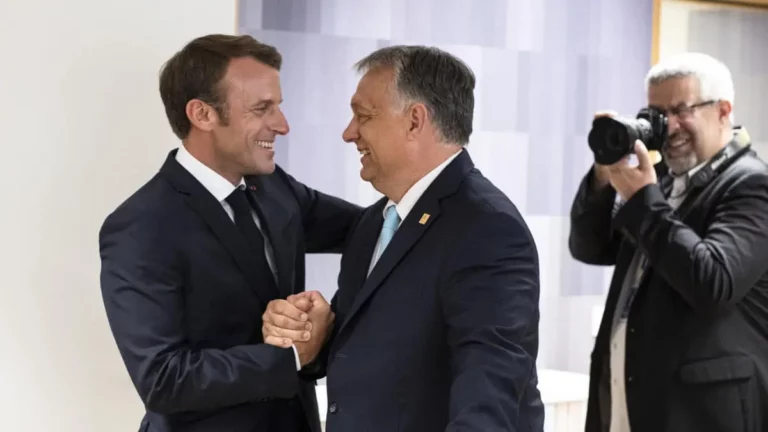Paks nuclear plant project
PHOTOS: Nuclear fuel rods arrived from Russia again

Foreign minister in Moscow: Paks upgrade taps Russian, US, German, French tech

Hungarian Foreign Minister stands up for energy cooperation with Russia

Here is PM Orbán’s new ally to hack the EU: Macron and the French plutocracy

Hungary-Russia contract concerning Paks NPP upgrade still kept in secret

Hungarian minister shared how the EU’s competitiveness can be improved

Hungarian minister confident about Paks nuclear power plant’s Russian upgrade

Rosatom head: All obstacles to Paks II construction removed, Lavrov guaranteed energy security

Government kicks out the Russians from the Paks nuclear fuel business?

Paks nuclear power plant upgrade impossible?

Hungarian FM: It is a realistic goal to build Paks II by 2030

Russian Rosatom starts building nuclear reactors in Paks

Hungarian government insists on Russian nuclear power: amendment to Paks contract signed

Paks plant further reduces output due to warming Danube

The threat of an impending third world war is greater than ever, says Hungarian minister in NY

Paks nuclear power plant in trouble: it runs with reduced performance

Construction of Paks nuclear power plant enters new phase
Work on the diaphragm wall for the expansion of Hungary's nuclear power plant in Paks is under way, with groundwork...
Hungary to buy modular nuclear reactor in a few years





 ZH
ZH IT
IT DE
DE HR
HR NL
NL FR
FR JA
JA RO
RO RU
RU ES
ES TR
TR
